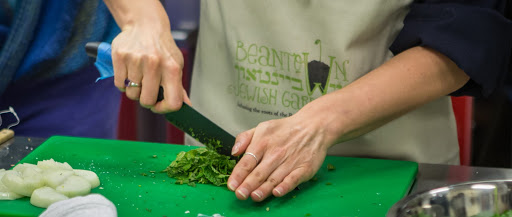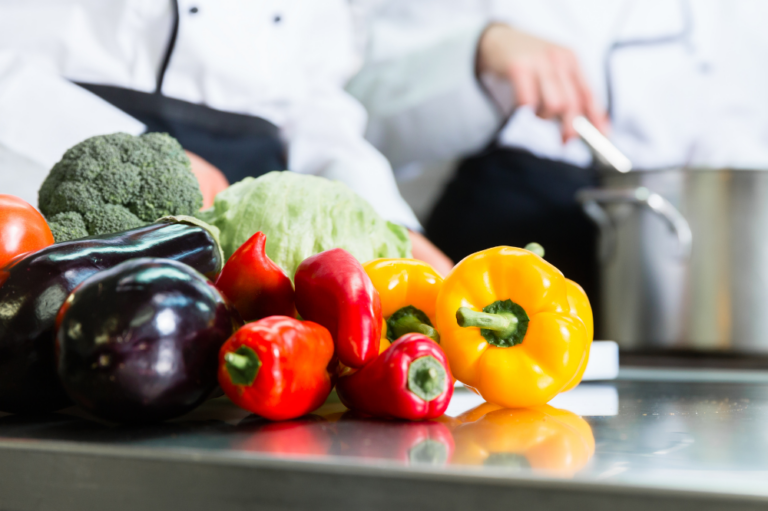If you’re in eastern Massachusetts with an interest in earth- and food-based Judaism, you’ve likely come across Beantown Jewish Gardens (Ganei Beantown in Hebrew).
For years now, JIFA has seen firsthand the valuable community-building that Beantown Jewish Gardens has brought to Greater Boston. In the three years since JIFA’s launch, we’ve sponsored and presented at their flagship event, the Boston Jewish Food Conference, which brings leaders, educators, farmers, and community members together to learn about local food resources, Jewish food traditions, and some of the most salient topics about today’s food systems, including factory farming. Beantown Jewish Gardens aims to become a nexus for Jewish involvement in sustainable food, with a solid basis in the core Jewish values of:
- L’ovda ul’shomra – To Till and to Tend: Being responsible stewards of the earth;
- Gemilut Chasadim – Bestowing Kindnesses: Being responsible stewards of each other;
- Tikkun Olam – Repairing the World: Being responsible stewards for the next generation.
Over the course of our involvement in Beantown Jewish Gardens, we have found that our organizations’ missions align. We’re very pleased to announce that, over the next year, JIFA and Beantown Jewish Gardens will work together to support a cohort of Greater Boston-based Jewish institutions in food education, food justice, and enacting their values through long-term ethical food commitments!
Starting in fall 2018, several Jewish institutions will develop food statements of intention (or policies) rooted in Jewish values including tzaar baalei chayim (consideration for animal welfare). Led by Beantown Jewish Gardens, the cohort program will provide members with tools to understand their current food purchasing, guidance on how to make meaningful improvements, a forum for discussing their processes and challenges, and a peer learning framework for ongoing support.
Says Leora Mallach, co-founder and Director of Beantown Jewish Gardens, “Our vision is for a Jewish community aware of their food choices—of the of the consequences and implications of their decisions. We recognize that making change on an institutional level has a bigger impact than in our individual homes and we’re excited to leverage that. Over the years, we’ve had conversations with congregations thinking about their food sourcing, and with support from JIFA we can work to actualize these conversations.”
As part of developing a food statement of intention, each institution will work with JIFA on sustainable and ethical food purchasing. By the end of the cohort’s participation in spring 2019, institutions will have produced tangible statements for institutional review and, hopefully, implementation. JIFA will lend any additional support that institutions may need to implement longer-term policies, such as researching supply chains, helping institutions access specific products, and providing further educational support around higher welfare and plant-based food sourcing.
By improving institutional food practices, the cohort will not only invest in better food systems, but also strengthen their connections to other Jewish communities. Says Leora, “The development of this cohort builds on the work we’re doing as network weavers in greater Boston. We envision a greater Boston Jewish community invested in ethical food purchasing, consumption, and waste disposal that transcends denominational boundaries.”
JIFA is thrilled to collaborate with an organization that is making on-the-ground change possible through a local network of institutions, and expects additional cohorts to develop in the future. As the trend of setting institutional food intentions grows, Beantown Jewish Gardens’ work will serve as an important model for Jewish communities at the forefront of promoting and building healthier, kinder, and more just food systems. We look forward to keeping you updated on this exciting partnership!
Find out more details here.




